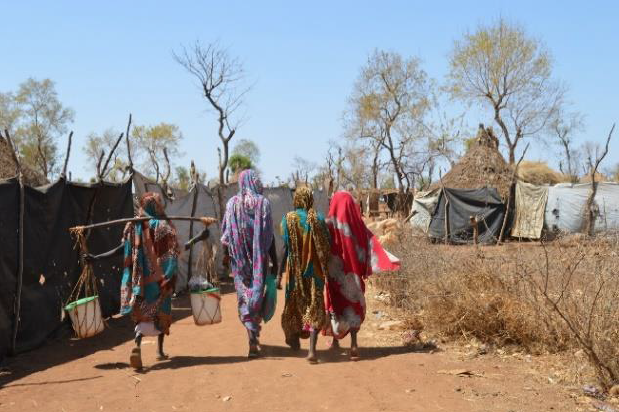
South Sudan became an independent country in 2011 after a long civil war between the Arab north and the Black African south of Sudan. One result of this was that not all tribes fighting against oppression from the Sudanese government ended up with their homelands in South Sudan, hence they are still in conflict and civilians have been forced to flee across borders into Chad, Ethiopia and South Sudan as refugees.
An initial visit by our partners in 2013 identifed a great need and opportunity to help numerous small tribes from the Blue Nile area of Sudan who are refugees in Maban County. The refugees were struggling to survive and support their families on aid rations and one of their greatest needs was to be empowered to farm again. Hence, Intec Transformation Project began in 2016 with a pilot of 200 farmers. The farm project has competed its 9th year (April 2024-March 2025), in that season empowering 1718 farmers to do small scale family farming in and around the 4 large refugee camps of Maban. Ages range from 18, to a 90-year-old matriarch, and the work has become a lifeline for many, as the hunger situation has deteriorated rapidly over the last months due to the humanitarial situation.
In order to continue running the project into the new farming season, additional support is needed - see below for information.
Who are these refugees?There are over 130,000 Sudanese refugees in Maban county housed in 4 large camps. The camp numbers range from 18,000 people/4,000 households to as many as 51,000/12,000 households. The refugees are made up of many different Islamic people groups including the Ingessana, Ragarik, Jumjum and sub-tribes of the Berta and the Burun. There has, over the past months, been a lot more movement as a result of the humanitarian situation. An influx of refugees from Sudan into Upper Nile state has put tremendous strain on local food resources. The conflict in Sudan also pushed many refugees who had previously returned to their homeland back into camps again. |
 |
How does Intec Transformation Project work?
-
By liaising with the authorities, via the local people group, land is granted to the refugees. Seed is initially provided to the farmers but after the harvest a portion is kept to use the next season. After living hand-to-mouth for years, this also helps them to get back into the practice of saving for the future.
-
Farmers choose their crops - sorghum, maize, sesame, ground nuts etc. Intec Transformation Project can source locally available varieties which is not only cheaper to buy than imported, but being native to the area they grow more successfully.
-
Pesticides are needed as temperatures don't drop low enough for pests to die off in "winter". Locally available pesticides are provided by Intec Services.
-
Tribal leaders choose 3-6 responsible farmers from each community to form a farming committee to oversee distribution of land, seeds and pesticides and be responsible for the return of 10% of the harvest.
|
 |
Current needs:
The 2025-26 farming season is hoped to provide a further 1,500 farmers and their families an opportunity to join the project. The running cost per farmer for the current season is £80.
In April this year, 2025, the team was finally able to purchase land to develop a base for the NGO, enabling the team to grow and increase their impact. Financial support is needed in order to develop the land. Please get in touch if you are able to help!
